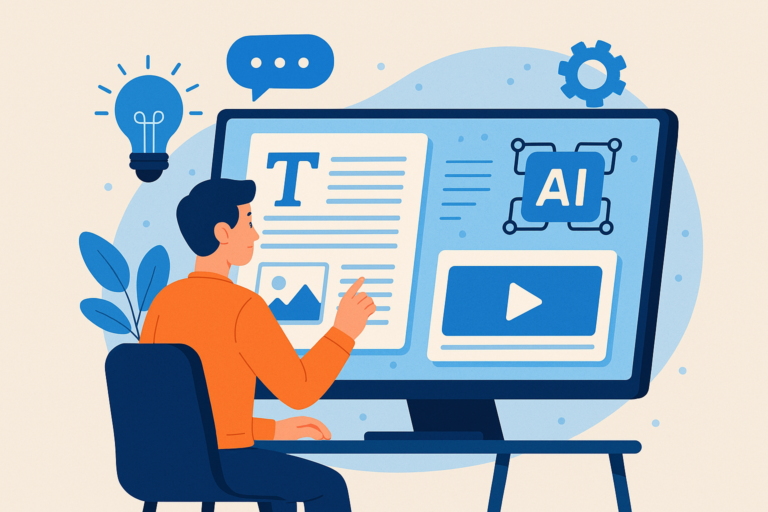How AI Boosts Productivity for Small Businesses
In today’s competitive business landscape, small businesses are constantly seeking ways to do more with less. Enter Artificial Intelligence (AI)—a powerful tool that is no longer reserved for tech giants. With the right implementation, AI can significantly boost productivity, streamline operations, and help small businesses stay ahead of the curve.
Table of Contents
- What Is AI and Why It Matters
- 5 Key Ways AI Boosts Productivity for Small Businesses
- Real-Life Use Cases of AI in Small Business
- Getting Started with AI
- Conclusion
What Is AI and Why It Matters
Artificial Intelligence refers to machines and software that mimic human intelligence to perform tasks like learning, problem-solving, and decision-making. For small businesses, AI offers accessible, cost-effective solutions that can automate routine tasks, enhance customer service, and provide data-driven insights.
5 Key Ways AI Boosts Productivity for Small Businesses
1. Automating Repetitive Tasks
AI can handle routine tasks such as data entry, invoice processing, and scheduling, freeing up employees to focus on high-value work. Tools like Zapier and Microsoft Power Automate make automation easy for non-technical users.
2. Enhancing Customer Service with Chatbots
AI-powered chatbots like ChatGPT or Zendesk can respond to customer inquiries 24/7, improving response time and customer satisfaction while reducing the burden on staff.
3. Smart Marketing Automation
AI can analyze customer behavior and personalize email campaigns, social media content, and ads. Platforms like Mailchimp and HubSpot offer AI-driven marketing features tailored for small businesses.
4. Data Analysis and Business Insights
AI tools like Google Analytics and Tableau use machine learning to help small businesses make sense of their data, uncover trends, and make informed decisions faster.
5. Talent and HR Management
AI can assist in recruiting, onboarding, and employee engagement through tools like Breezy HR or HireVue, saving time and improving hiring accuracy.
Real-Life Use Cases of AI in Small Business
- Retail: Personalized product recommendations and automated inventory management.
- Restaurants: Predictive analytics for managing supply and optimizing staff schedules.
- Service Providers: AI-based CRMs like Zoho CRM for client follow-ups and lead tracking.
- eCommerce: Chatbots, upselling suggestions, and automated customer support.
Getting Started with AI
Adopting AI doesn’t have to be overwhelming. Here are simple steps to get started:
- Identify pain points in your current workflow that could be automated.
- Start small with tools like ChatGPT for emails or Grammarly for writing assistance.
- Choose user-friendly platforms with good customer support and integration capabilities.
- Train your team and ensure they understand how to leverage AI tools effectively.
Conclusion
AI is no longer a futuristic concept—it’s a practical solution that’s revolutionizing how small businesses operate. By automating tasks, enhancing decision-making, and improving customer engagement, AI helps small businesses work smarter, not harder.
Ready to boost your business productivity? Explore simple AI tools today and take the first step toward a more efficient future.





